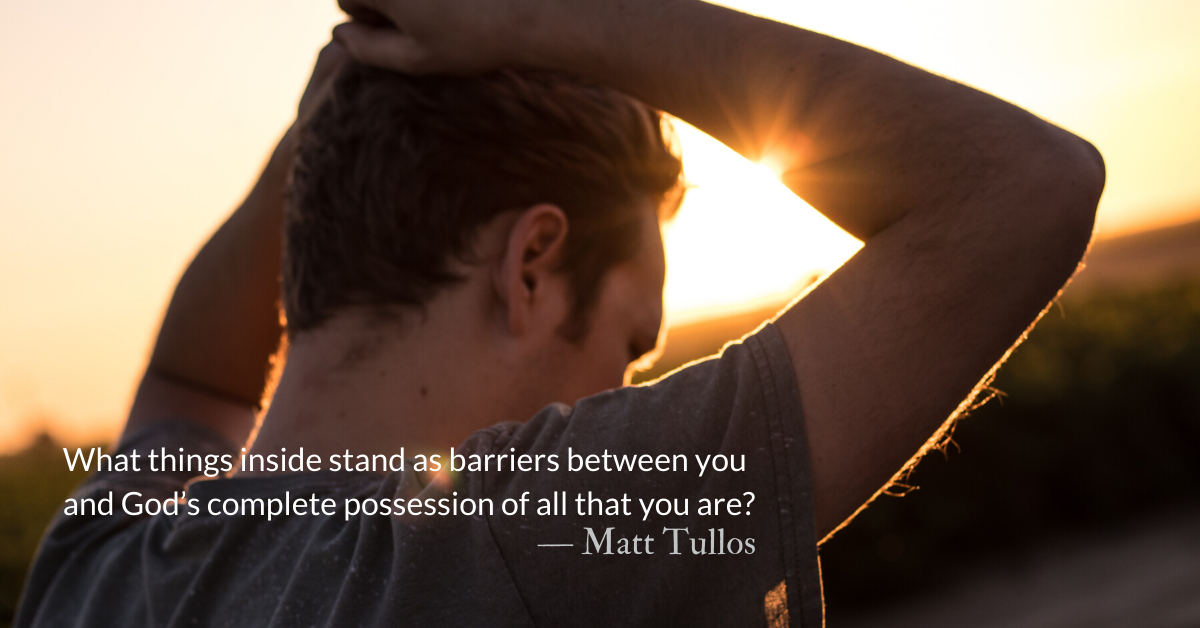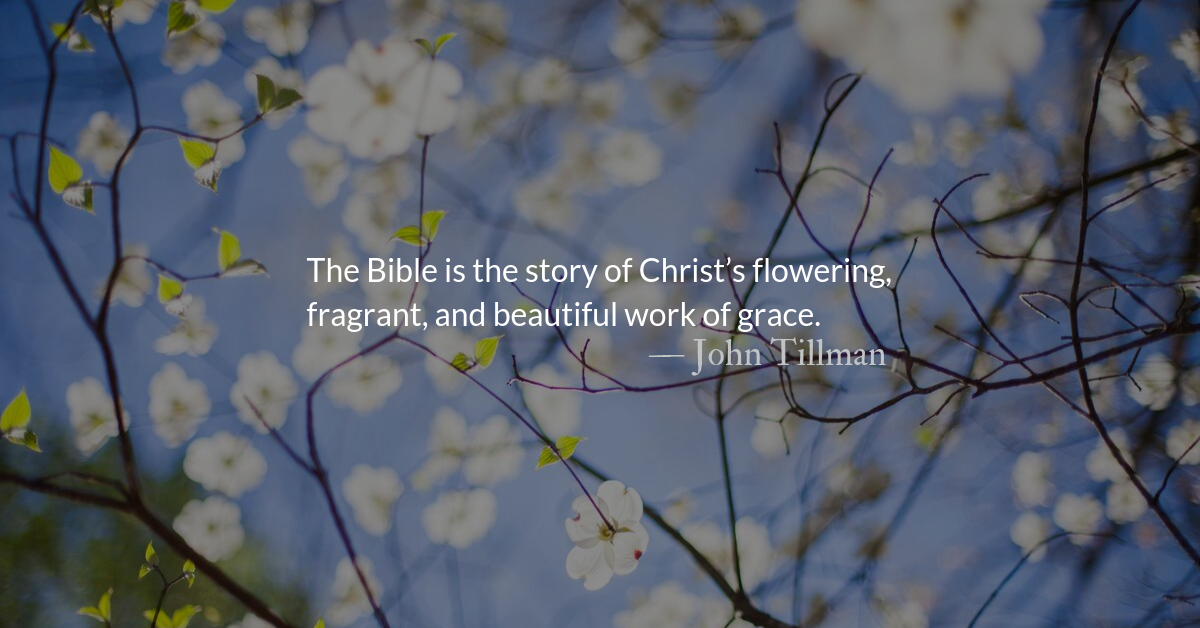Scripture Focus: Galatians 2.20
I have been crucified with Christ and I no longer live, but Christ lives in me. The life I now live in the body, I live by faith in the Son of God, who loved me and gave himself for me.
Reflection: On Surrender
By Matt Tullos
Surrender: The releasing of every solution, tool, and self-saving strategy.
Jesus walked to the cross in total surrender.
He explained it this way: “No one is taking it from me; I lay it down of my own free will. I have the authority to lay it down, and I have the authority to take it back again. This is what my Father has commanded me.” (John 10:18)
There has always been a controversy around who killed Jesus. But Jesus was clear. He gave up His life as an offering. As we remember the brutal account of Jesus’ death, He invites us to see the cross as an embraced undertaking.
We are His prize and He snatched us away from the enemy through the brutality of an unthinkable surrender. He loved us enough to engage himself in a 33 year passage toward an unspeakable end.
In this act we see how real love works and He is inviting us to enter this story, to live, die, and live again. When we live like Jesus, life is ever before us as an opportunity to surrender everything. What does that look like for you? Only Jesus knows and He will reveal it to you soon enough.
“Arise – go! Sell all you possess. Give it directly, personally to the poor. Take up My cross (their cross) and follow Me, going to the poor, being poor, being one with them, one with Me.
Little – be always little! Be simple, poor, childlike.
Preach the Gospel with your life – without compromise! Listen to the Spirit. He will lead you…
Do little things exceedingly well for love of Me.
Love… love… love, never counting the cost
Go into the marketplace and stay with Me. Pray, fast. Pray always, fast.
Be hidden. Be a light to your neighbor’s feet. Go without fear into the depth of men’s hearts. I shall be with you. Pray always.
I will be your rest.”
— Catherine Doherty’s Little Mandate
The image of the cross is an image of absolute surrender.
When we enter into the story of Christ we see a point in time when we cannot use our hands to control anything. Our will, determination, ambition, and skill are nailed to the holy cross of Christ. While the world’s system teaches us how to control others and change ourselves, the cross has no such purpose. On the cross, our hands are not busy. They are surrendered.
The cross compels us to die to that old foe that the world calls “a self-made man.” Everything that feeds our own power, pride, ego, and self-determination has to go. It simply must. God is not improved by our efforts. He is glorified by our surrender.
When absolute and complete surrender takes hold of you, you will experience the bliss of satisfaction in Him. Whatever you have or don’t have… it wholly means nothing when you have given it all to Him. You live. You breathe. You worship. You give.
This is enough.
Survey the state of your heart. What things inside stand as barriers between you and God’s complete possession of all that you are?
*From a series Matt Tullos wrote called 39 Words. A few of these posts (including today’s) are available in audio form via Soundcloud. — John
Divine Hours Prayer: The Refrain for the Morning Lessons
“Because the needy are oppressed, and the poor cry out in misery, I will rise up,” says the Lord, “and give them the help they long for.” — Psalm 12.5
– Divine Hours prayers from The Divine Hours: Prayers for Springtime by Phyllis Tickle.
Today’s Readings
Proverbs 3 (Listen -3:05)
Galatians 2 (Listen -3:44)
Read more about The Step After Surrender :: Throwback Thursday
It is not this thing or that thing that must go now: it is blindly, helplessly, recklessly, our very selves.
Read more about More and More and Less and Less :: Guided Prayer
We will be at our happiest, at our most fulfilled, and at our most true self when we continually surrender more and more to the leading of the Holy Spirit.











